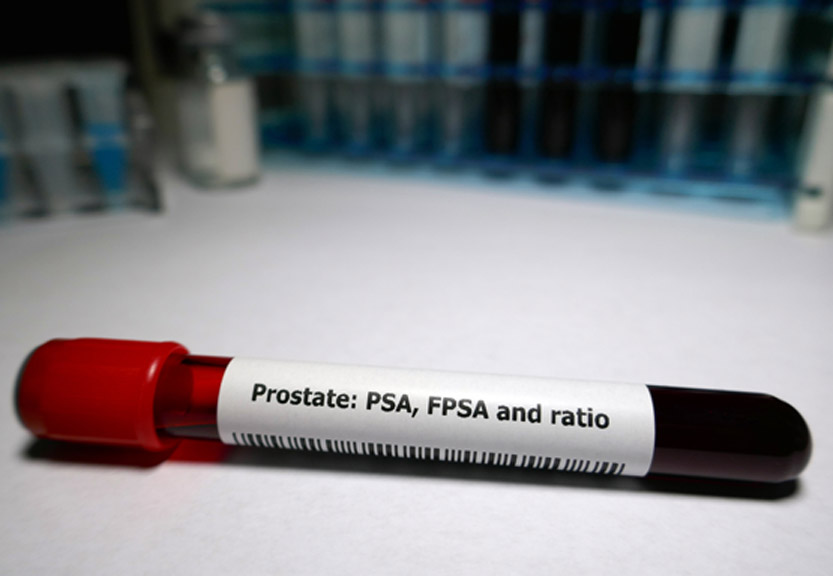

Patients with elevated prostate-specific antigen (PSA) levels may have prostate cancer. Elevated PSA levels may also indicate non-cancerous problems such as prostate enlargement and inflammation. A primary care physician will work with the patient to identify the next steps.
What is a prostate-specific antigen (PSA)?
PSA is a protein produced by the prostate gland. A malfunctioning prostate gland releases abnormal levels of PSA. High levels of PSA may indicate the presence of prostate cancer.

What is considered an abnormal prostate-specific antigen (PSA) level?
The medical community has not determined a single normal PSA level. In general, a level of 4.0 ng/mL or higher would require more testing, usually a prostate biopsy, to identify the cause. During a prostate biopsy, the physician removes small samples of prostate tissue to check it for cancer.
However, physicians now consider other symptoms and causes when deciding whether to perform a biopsy. The patient’s age, general health, family history, and health history are important factors considered in the decision-making process.
Does PSA level determine the presence of prostate cancer?
When considering whether to test for prostate cancer, the physician will look at two factors related to the patient’s PSA level:
- The PSA level: A higher level indicates a higher risk of prostate cancer.
- A continuous rise: PSA levels that continue to rise after two or more tests may indicate cancer.
But the PSA level alone doesn’t determine if the patient has prostate cancer or not. Two patients can have the same PSA levels but different risks of prostate cancer. A high PSA level may indicate non-cancerous prostate problems.
Other Risk Factors for Prostate Cancer
Patients may be at increased risk for prostate cancer if they:
- Are older than 50 years
- Are of African-American or Caribbean descent
- Have a family history of prostate cancer
- Have certain genetic changes that increase the likelihood of developing prostate cancer
How common is prostate cancer in men with an elevated PSA level?
Patients can have prostate cancer even if screening tests indicate a normal PSA level. But the risk of cancer is increased with an elevated PSA level. When PSA levels are:
- Below 4, patients have a 15% chance of prostate cancer
- Between 4 and 10 (the borderline range) patients have a 25% chance of prostate cancer
- Above 10 patients have a more than 50% chance of having prostate cancer
What causes an elevated PSA level?
Prostate cancer is the main cause of an elevated PSA level. However, PSA levels naturally increase with age and can reflect a range of prostate conditions. Other factors that may raise a patient’s PSA level include:
- Prostate enlargement and inflammation (prostatitis)
- Urinary tract infection
- Urinary catheter (tube) placement
A physician will also consider whether the patient’s medications are affecting their PSA levels. For example, 5-alpha reductase blockers treat enlarged prostates and will lower PSA levels.
Does an elevated level of PSA cause symptoms?
An elevated PSA level doesn’t necessarily cause symptoms, but it may be a sign of underlying prostate problems, such as cancer. Patients experiencing any of the following symptoms may need to do a PSA test:
- Trouble urinating
- Frequent urination, including during the night
- Weak urine stream
- Urinary incontinence (difficulty holding urine in)
Patients with elevated PSA levels should schedule an appointment with Dr. David Lee for further testing, diagnosis, and treatment.
